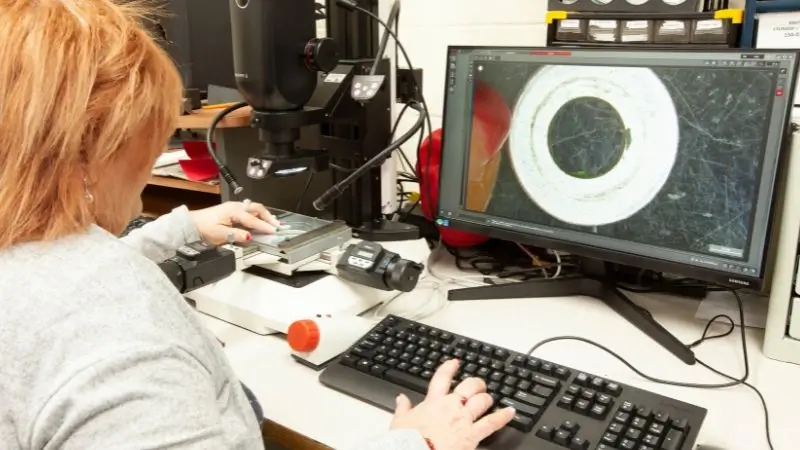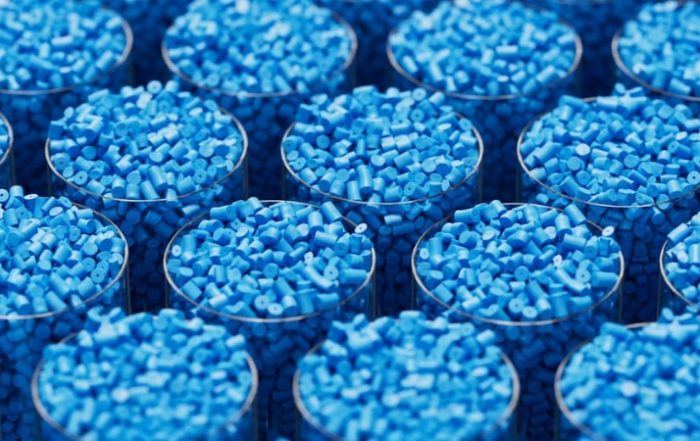
The Purpose of Quality
A Framing Device
Suppose you were the CEO of a manufacturer at OmniCo., a producer of Widgets. Suppose that, in your capacity as manufacturing CEO, you were omnipotent. How would that go? Well, you could simply have the finished product appear from the aether at your customer’s shipping dock, and payment would manifest directly in your bank account upon order reception. The finished product would be perfectly uniform and would perfectly meet specifications. You would need pay it no more mind than it takes to manifest perfectly packaged Widgets wherever they ought to go, any time your inbox receives a purchase order.
For OmniCo., there is no need for much of what makes manufacturing difficult. No production errors, assembly delays, or shipping issues—finished product appears at the customers’ docks; no purchasing—no manufacturing means no need to purchase items; and no quality control—all product conforms precisely to specification.
Of course, if you’re reading this, then omnipotence isn’t an option for your manufacturing company. Much of what makes manufacturing difficult lies precisely in the tendency for things to not quite go as they should. In what follows, I would like to briefly look at how OmniCo. differs from an actual manufacturer, and what a manufacturer can do to approach OmniCo’s level of quality.
What Makes Manufacturing Difficult
The first and most obvious difference between OmniCo. and any actual manufacturer is that actual manufacturers must actually make their goods. Raw materials are transformed into parts, which are then transformed into Widgets. Our actual manufacturer will therefore have to hire one person to purchase the raw materials, another to transform them into parts and assemble them into widgets, and a third to package and ship them. Someone will have to take orders, do accounting, and issue invoices. These are the basics of a manufacturer: the manufacturing process and all of the logistics surrounding it.
In reality, things rarely go exactly to plan. Any tool or machine used for the transformation of raw materials into Widgets will eventually require maintenance, even under ideal circumstances. The raw materials themselves are not perfectly uniform—plastic pellets are not all identical to each other and perfectly monomolecular, metals and alloys are never 100% pure. Any deviation in the input can cause deviation in the output. This is typically why manufacturing is done with tolerances in mind; it would be foolhardy to assume that any process conforms perfectly to specification. Deviation, the possibility for error, is an inherent feature of the real world.
The Possibility for Error
The possibility for error is a fundamental difference between OmniCo. and an actual manufacturer. If we limit OmniCo’s omnipotence so they couldn’t simply manifest raw materials in its reception dock, having to purchase them like any other company, they would, as a matter of course, receive only perfect, uniform materials. The production line would naturally only use good tools to produce good parts. The question would not need to be posed, “Can a step along this process go wrong?” Meanwhile, for any real firm, this concern is ever-looming, and its answer requires concerted effort.
The first-order concern is that production parts should be inspected to confirm that Widgets meet specifications. At any step along the path from raw material to finished good, an error could be made that introduces a nonconformity. Therefore, at every step, it would be prudent to ensure that no such nonconformities have arisen. Dimensional, visual, and functional inspection can all catch issues in production before they pass to the next step, and outgoing inspection can ensure that only good parts leave the facility. However, not all defects can be caught in the process. There are many features that cannot be tested at a large scale or which would be destructive to the part.
Given the inability to test many characteristics, stability can nevertheless be achieved through control of second-order variables. That is, control over the incoming goods and tools that make up and produce the parts that meet specifications. A bent fixture or defective raw materials can cause further defects, so the material should be inspected, and the tools should be maintained and calibrated. A bent fixture or defective raw materials can cause further defects, and in injection molding, a worn mold cavity or miscalibrated press can easily create dimensional deviations. In short, anything which is not the finished good itself, but which produces, becomes, or manipulates it, should be monitored and controlled. Likewise, the environment should be monitored and controlled, since changes in ambient temperature and humidity can cause changes in the final product beyond direct manipulation.
Inspection, Tolerances, and Quality Assurance
On the scale of individual parts, measurement performed as part of production is most reliable. In fact, for a manufacturer concerned only with producing good parts, it would be prudent to measure every possible dimension at every step of the process. The best way to know whether parts meet specification is, after all, to check directly. But this leaves room for deviation to sneak in. Any dimension not verified is one which could be out of tolerance. How can one go about ensuring that parts are good without testing them?
Ensuring that Parts Are Good Without Testing Them
The third order concern for a manufacturer is not the acceptability of any particular part, but of the process as a whole, from raw material to finished good. The effective way to ensure parts meet specifications is to control the manufacturing process sufficiently tightly to minimize deviation. If the deviation in a process is small compared to the acceptable range of results, then there is little chance that nonconformities will arise. In such a well-controlled process, inspection of the parts is effectively a formality. Little more than a confirmation that everything is going to plan. In effect, a manufacturer which has its processes under control has approached OmniCo’s level: nonconforming parts are simply never produced.
In many manufacturing companies, the role of Quality is to measure the product and catch the nonconformances. But this is an insufficient method of process control. It either assumes that all nonconforming parts will be within the sample set or accepts the possibility of escapes. In the best manufacturing ones, the role of Quality is to prevent the nonconformities, rather than to catch them. By putting in the work to ensure that its processes are under control, a Quality department can help a business emulate the output of OmniCo.
Buy-in
No subset of an organization can control the whole organization. Organizations are, by their nature, collaborative; any goal desired by one branch must be helped, or at least not hindered, by the other branches. The goal of making the role of Quality one of prevention rather than reaction requires a certain buy-in from the other branches of the organization:
- A commitment to planning for an honest evaluation of process capability
- A commitment to proper environmental control
- A commitment to ensure adequate time for testing before production is required
- A commitment to re-run the tests if things don’t go well the first time.
A manufacturer which can do all this can approach OmniCo’s level of quality.
Violet Gutierrez
Quality Coordinator at PreciKam
Quality in Plastic Injection Molding at PreciKam
OmniCo. may be an imaginary, omnipotent manufacturer, but the ideal it represents is not beyond reach. Real manufacturers cannot eliminate error or variation entirely, yet they can design processes that make defects rare exceptions instead of routine outcomes. By shifting the role of Quality from detection to prevention, and by securing buy-in across every branch of the organization, a manufacturer can move closer to OmniCo.’s standard: consistent, reliable production that feels almost effortless. This is especially true in plastic injection molding, where disciplined process control and quality assurance transform raw pellets into molded precision components for industries like medical devices and aerospace.
Partner with PreciKam for precision plastic injection molding backed by a robust quality management systems you can trust. Let us produce your molded precision plastic components with full quality assurance every step of the way.









Follow Us